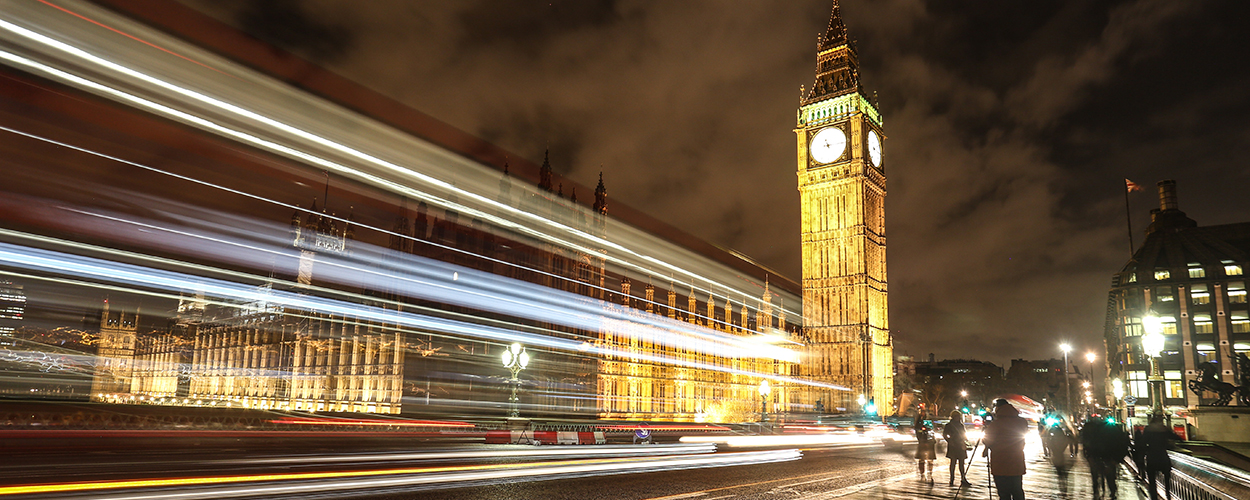This website uses cookies so that we can provide you with the best user experience possible. Cookie information is stored in your browser and performs functions such as recognising you when you return to our website and helping our team to understand which sections of the website you find most interesting and useful.
Business News Labels & Publishers Legal Top Stories
Music industry responds to government’s copyright (no) directive announcement
By Chris Cooke | Published on Tuesday 28 January 2020

Organisations representing labels, musicians and artist managers have all responded to last week’s confirmation by the UK government that it has no plans to implement the European Copyright Directive, including its music-related reforms.
Responding to a query by MP Jo Stevens, minister Chris Skidmore last week said that – because his government currently aims to be cut free from European Union rules by the start of 2021, and the deadline for implementing last year’s copyright directive isn’t until June 2021 – the UK is not obliged to implement the European copyright reforms.
Skidmore added that the government has no plans to do so voluntarily, saying that “any future changes to the UK copyright framework will be considered as part of the usual domestic policy process”.
The UK music industry, of course, lobbied hard alongside its counterparts across Europe for the copyright directive, which includes various music-specific articles.
In particular, the industry at large rallied behind the safe harbour reforms contained in article seventeen, which increases the copyright liabilities of user-upload platforms like YouTube. Artists and songwriters also pushed for other directive articles that should allow creators to get for more transparency and fairer deals from record labels and music publishers.
Although the UK government does not plan to implement the EU copyright reforms, culture minister Nigel Adams did say last week that it supported the aims of the directive. Meaning the UK music industry will now have to start lobbying anew, seeking to persuade UK lawmakers to adopt similar reforms to those being implemented across Europe.
Kickstarting that process, Paul Pacifico, CEO of the Association Of Independent Music, stated yesterday: “Whilst it is clear that the government will not implement new European legislation on copyright, they must uphold their pre-election promises to support UK creators and creative businesses”.
“The British music industry generates and invests in some of the world’s most exciting and diverse content”, he continued. “The value it generates comes back to the UK economy, a lot of which is driven by the self-employed and small businesses. For British music to survive and thrive in a post-Brexit landscape it needs a modern copyright framework that fits the digital era”.
Concluding, Pacifico said: “There is an opportunity to make Britain the best place on earth for the creative economy, to build on our proud heritage and to look forward to a future in which people all over the world continue to dance to the beat of British music”.
The boss of the Incorporated Society Of Musicians, Deborah Annetts, likewise called on the UK government to reform British copyright in line with the rest of Europe. Either by pursuing similar UK-specific reforms or, even better, by reversing its decision on the directive.
She said yesterday: “The ISM is disappointed by the government’s decision to not implement the EU Copyright Directive. This directive is a crucial update to copyright legislation which would give artists their rightful payment and protect their work. As outlined in the ISM Manifesto For Musicians, the government must either enshrine and implement the directive or introduce comparable legislation”.
“Artists are vital contributors to culture and deserve clear and fair remuneration for their work and to benefit from the same protections afforded to artists in Europe”, she added. “We urge the government to rethink their decision”.
Meanwhile the CEO of the UK’s Music Managers Forum, Annabella Coldrick, noted that – although safe harbour reform got the most press when the EU directive was being negotiated, thanks to the wider music industry’s high profile ‘value gap’ campaign – the other music-related reforms within it are just as important to artists and songwriters.
Therefore, if that directive is not to be implemented, any subsequent UK-centric reforms should not just focus on increasing the liabilities of user-upload websites.
“For advocates of Brexit, the UK’s departure from the EU was supposed to provide clarity and certainty”, she said. But, just days before the Brexit process begins on 31 Jan, “the UK’s artists, songwriters, musicians and producers now find themselves faced with the reverse”.
“The copyright directive is about much more than ‘the value gap'”, she added. “It has potential to recalibrate [copyright] legislation for the benefit of those who contribute most to the success of British music. It is vital that the entire package is enacted”.
To that end, Coldrick concluded, the MMF “will now look to pick up discussions with government” alongside “our friends and colleagues in the Council Of Music Makers and UK Music”.





